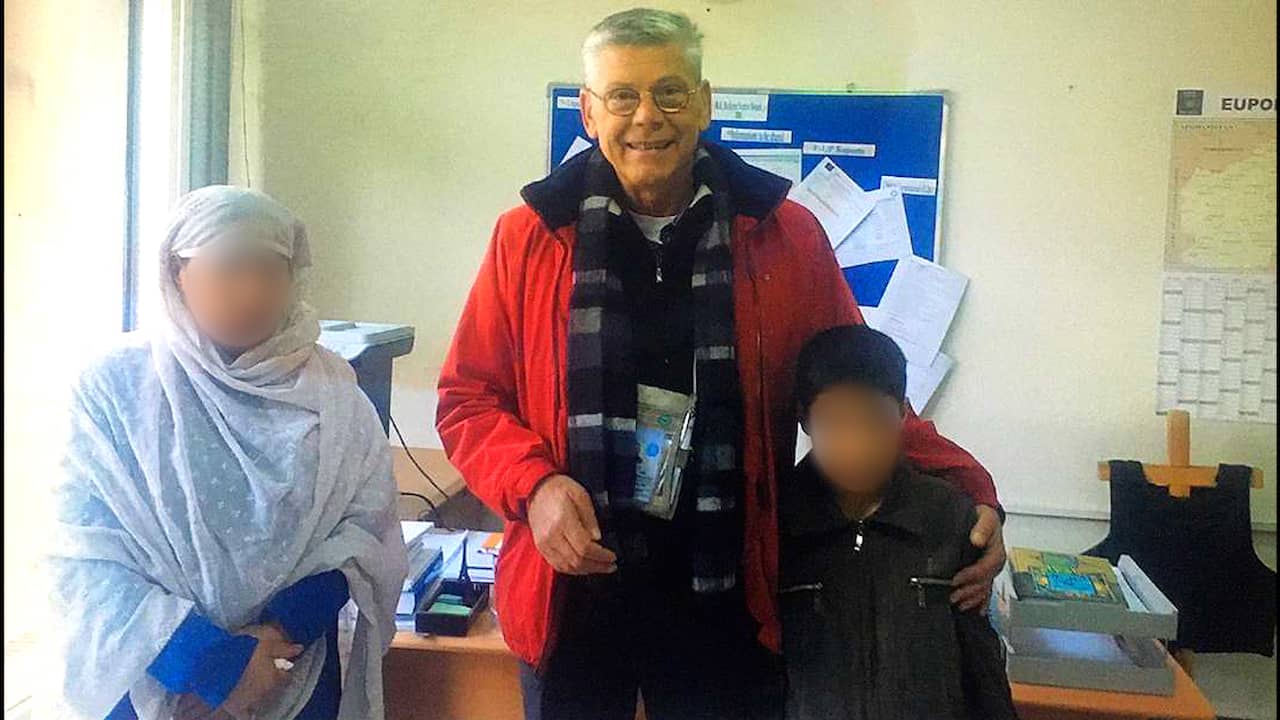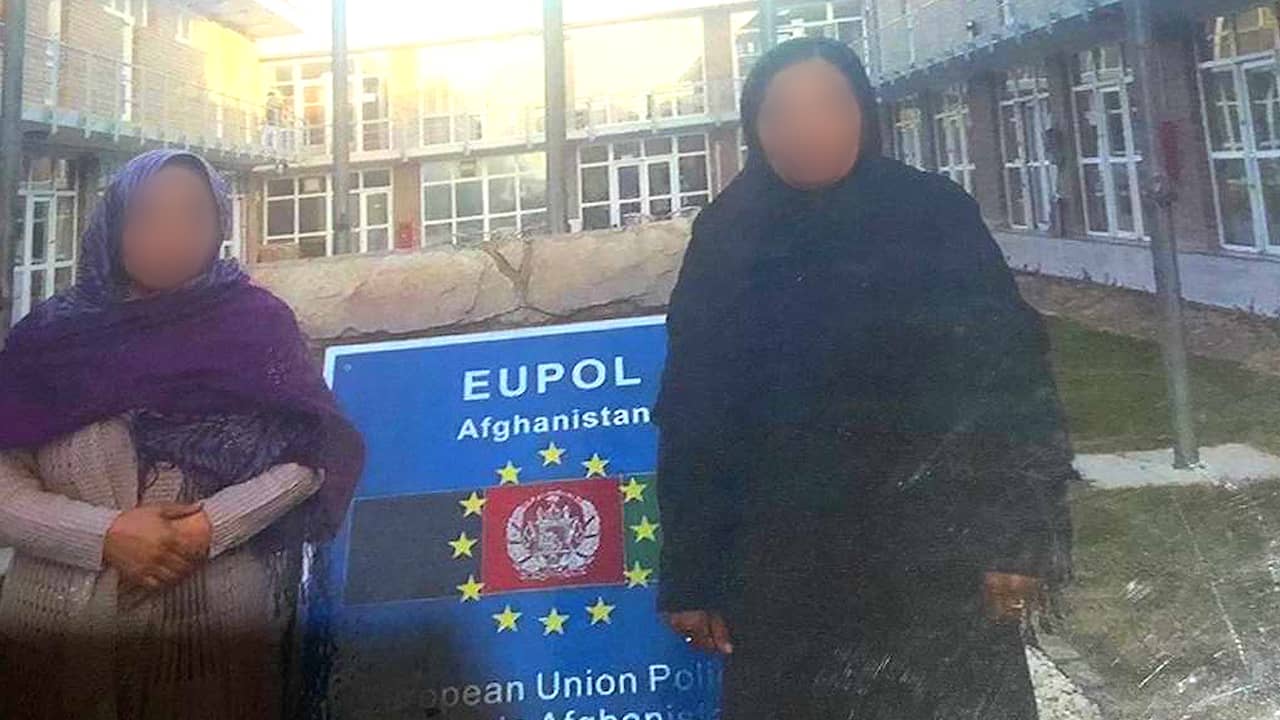Ten former employees of the European police mission in Afghanistan were recently told that they are no longer eligible for evacuation. And that while their direct colleagues have been brought to the Netherlands. “The Netherlands is not doing too well when it comes to settling a debt of honour,” says Dirk van Vierssen, who was active in the mission on behalf of the Netherlands for many years.
Retired attorney general at the Public Prosecution Service Jan Gras and former strategic policy advisor at the police academy Dirk van Vierssen sound the alarm. How is it possible that one employee of the European Police Mission (EUPOL) in Afghanistan has been transferred to the Netherlands and the other has not? Both Gras and Van Vierssen worked on behalf of the Netherlands at EUPOL.
They are now making an urgent appeal to the cabinet and the House of Representatives to transfer employees of the European police mission who are still in Afghanistan to the Netherlands. So far, their pleas have not been answered. “These people have been forgotten for months, and now they suddenly no longer qualify, while their direct colleagues are all safe? There is a double standard here and that is not possible,” says Van Vierssen.
The two Dutchmen reinforce their argument by pointing to a decision by the European heads of government in February this year where it was decided that member states should “support” the evacuation of all EUPOL staff. Van Vierssen: “Prime Minister Mark Rutte was there when these agreements were made, then you have to stick to them.”
‘I was rejected, how is that possible?’
Since the Taliban took power in Afghanistan, dozens of Afghan EUPOL employees have been transferred to the Netherlands with their families, including interpreters, drivers and cleaners. It is estimated by former interpreter Massoud that a total of about five hundred people have been received in asylum seekers’ centres.
But there are also about ten former EUPOL employees who still reside in Kabul. They all recently received a rejection by e-mail with the same text, seen by NU.nl. NU.nl has contact with six of those former employees. “I’ve seen one former colleague after another leave over the past year. I served the European Union for nine years, I worked longer at EUPOL than most of my colleagues, but I was rejected, how could that be?” Soraya tells NU.nl (the real names of the Afghans who are mentioned in this piece are known to the editors).
Soraya worked as a cleaner at EUPOL between 2008 and 2017. She has been in hiding since August last year, moving from address to address with her family. “Because we worked for an international organization, the Taliban consider us ‘infidels’. My husband was a soldier in the Afghan army, which makes it more difficult. We received a call to report, which we did not respond to .”
Soraya with her son and a Dutch EUpol employee in Kabul.
Soraya with her son and a Dutch EUpol employee in Kabul. Photo: Private collection Soraya
–
–
–
Abdul also worked as a cleaner for the mission for a long time, from 2008 until the end in 2016. He sends a video recording of a room where he is hiding with his family. He says that if he is arrested he will be killed. “My colleagues are in the Netherlands, why not me?” he also wonders. “I ask the Dutch authorities to get my family out of Afghanistan as soon as possible.” Inquiries by NU.nl with former colleagues of Soraya and Abdul confirm their reading that their situation is the same as the EUPOL employees already transferred to the Netherlands. “For years I worked with Soraya and Abdul,” says Nilufer. “Our situation is the same.”
A third straggler – we call him Basir – was on the list to be evacuated, but stayed because his son had no passport and could not come along. The engineer who also worked for EUPOL has not heard from the Dutch authorities for 40 days. “We are in danger, can you inform the Dutch authorities that we need their help?”
It is not surprising that Soraya and then other EUPOL members are concerned for their safety. One of the interpreters who worked for the mission between 2013 and 2016 has been killed in Kabul. Men in a car, formerly employed by the government, shot him at home. The interpreter was on the evacuation list.
After nine months, Soraya gets a rejection
During the chaotic days of the fall of Kabul last August, Soraya, like her colleagues, asked to be evacuated. She initially received no response to her emails. It is only in February that she is told that her case is being considered, after which it becomes quiet again. At the end of March she receives an email in which the ‘interpreter team’ of the Ministry of Defence. It contains “heartfelt apologies” for the slow processing of their request and promises that a decision on their case will be made “within weeks”.
On June 17, another apology follows: “We apologize for the slow processing of your case. We realize that you have been waiting for a response for a long time.” And on June 29, almost nine months after Soraya contacted the Dutch government for the first time, a rejection follows “because you do not meet the criteria”.
After her rejection, Soraya comes into contact with former EUPOL employees Jan Gras and Dirk van Vierssen through a former colleague who is already in the Netherlands. They send an email to Defense on the day she is rejected: “At the moment, Soraya sees former colleagues leaving for the Netherlands, but she herself is in great uncertainty. We would like to know the status of her evacuation.”
That same afternoon, the “interpreter team” reported that they “unfortunately cannot provide information about the progress of individual cases”, but that the case “has our full attention”.
‘A row of slips’
Van Vierssen receives explicit permission from Soraya to perform on her behalf in the Netherlands. In a subsequent email to Defense he calls it “inhumane” to take nine months to make a decision “about the fate of people in need”. It “has taken long enough now,” he writes. “Madam has worked for the mission in Afghanistan for years and the chance that this is known to the Taliban is therefore very real. Unfortunately, the Netherlands is not doing too well when it comes to settling a debt of honor to Afghan ex-colleagues, such as from recent publications. Now please make sure we don’t have to publicly add Ms’s case to the list of slips.”
There is no response to the email. A spokesperson for the Ministry of Defense informs NU.nl that he “cannot comment on individual cases”.
This is how this article came about:
- NU.nl spoke with former attorney general at the Public Prosecution Service Jan Gras and former teacher of the police academy Dirk van Vierssen, who works on behalf of the Netherlands for the European police mission.
- We were in contact with a number of former mission personnel who are still in Afghanistan.
- And were able to view e-mails sent to these employees.
- We also spoke with former employees who were transferred to the Netherlands.
–
–
–
NU.nl is curious about your opinion about this article. Click here to complete a one minute questionnaire. Thank you very much!
–


